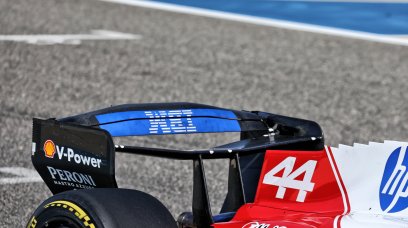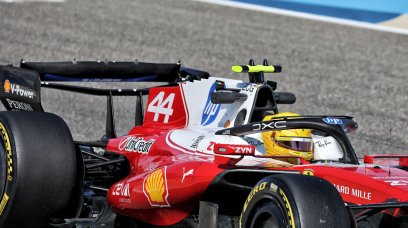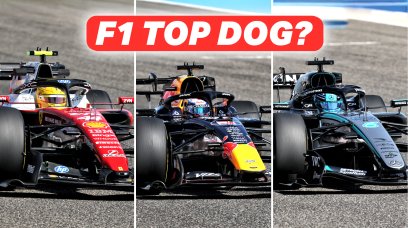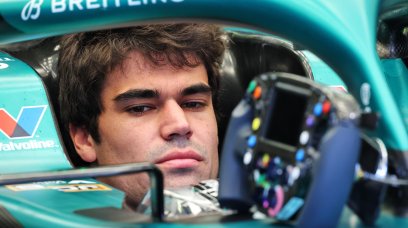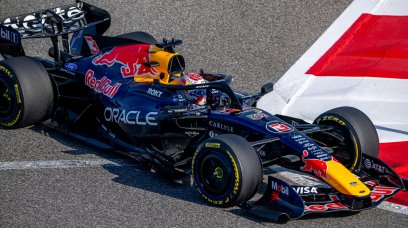Pirelli has been the official Formula 1 tyre supplier since 2011, with the Italian company entering the championship with the task to 'spice up' the racing. This would involve high degradation tyres that could give multiple strategy options for teams, leading to more than one pit stop each race. The tender form was a lot less complicated in 2010 compared to what it is like now, according to Pirelli Motorsport Director Mario Isola. "I was comparing a report that we did in 2011 with the report we do now and it's incredible. The one page we provide in 2011 [compared to] the book that we provide now," he told media, including RacingNews365.com . Since entering as the sole supplier, Pirelli has expanded its operations across the F1 portfolio to provide bespoke tyres for support categories including Formula 2, Formula 3, and most recently the F1 Academy. Pirelli is also a global partner of F1, with its branding seen across advertising hoardings on tracks and becoming the main sponsor for select events. This expanded to the 'Hot Laps' in 2018, an extension of the F1 Paddock Club VIP experience. It's fair to say they have become an integral part of the F1 family over the last 13 years. But with the popularity of F1 reaching new heights in the US, rumours of Bridgestone potentially returning have emerged.
Could Pirelli be ousted in favour of another supplier?
The next F1 tyre supplier contract will be exclusive from 2025 to 2027, with the option to extend this for an extra year. The FIA state the tyres must have little chance of overheating and low wear as possible, while also remaining 18-inches. "I can tell you is that the tender document was a lot more complicated than in the past with many sections and many elements added compared to the last one," explained Isola. "There is a big part linked to sustainability, a big part linked to our ability to supply a product with certain characteristics or service with certain characteristics, a number of engineers, it was a lot [of work] to complete all the paper needed for that. "I believe that all this documentation should be considered in the evaluation of the future supplier. Then there is the commercial negotiation with F1 which includes the sponsorship." The sustainability aspect of this deal is clearly a high priority for F1 and the FIA as they look to make the World Championship net-zero by 2030. At present Pirelli already recycle each of the used tyres from a Grand Prix weekend, which amounts to close to 40,000 per-year. Bridgestone has a commercial advantage with its ownership of the Firestone brand in the US which supplies tyres to IndyCar, with it recently introducing new 'Green Eco' tyres derived from sustainable materials. If the Japanese-maker can find a way to reduce the amount of tyres brought to a race weekend, it could lead to F1 thinking more strategically about its tyre usage in the rules. The key to the current Pirelli deal could be the extensive tests ongoing with the push to ban tyre blankets , which has divided opinion amongst drivers . If the teams, FIA, and F1 commercial rights holder agree to follow through after the final test in Silverstone next month, this would almost certainly mean that Pirelli would have an head-start in negotiations.
Would F1 enter another tyre war?
The last time F1 had two main suppliers was in 2006 when both Michelin and Bridgestone provided tyres between them for the teams. Michelin's future was put in doubt after the 2005 Indianapolis fiasco, which led to all seven of the teams they supplied pulling out on safety grounds. Then in 2006 the teams unanimously agreed to have just one sole supplier, which went to Bridgestone. At the time the FIA said the move to a sole supplier would make F1 "safer, fairer, and less expensive for the teams" while also avoiding a repetition of the problems from 2005. It is unlikely that both Bridgestone and Pirelli would want to compete, with Michelin being the only manufacturer publicly stating that it would return if they were up against another supplier. It would also conflict with the goals of F1 and the FIA in this tender process, as they want tyre that provide a range of strategy options for teams rather than a product that can last a race distance.
Most read
